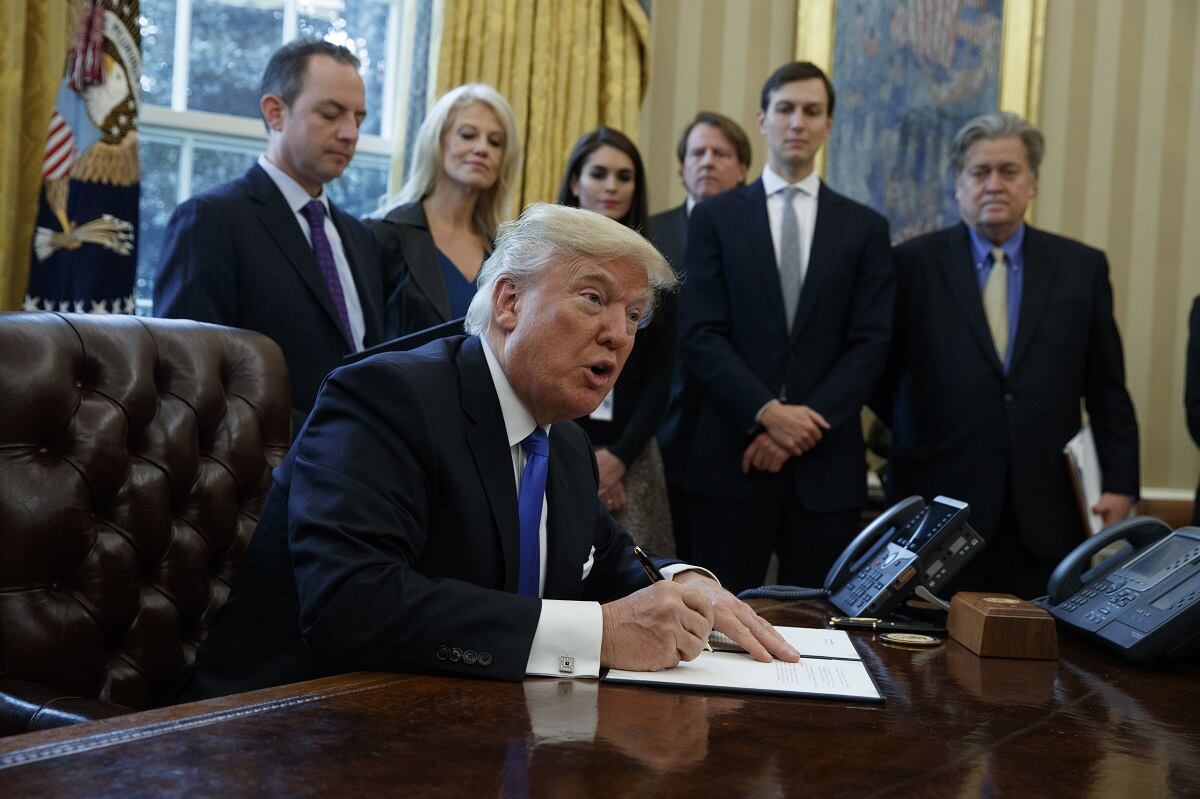WASHINGTON — Lawyers representing federal labor unions accused the Trump administration of trying to “weaponize” executive power and “destroy” collective bargaining during a July 25 U.S. District Court for the District of Columbia hearing. Meanwhile, a Department of Justice legal team dismissed the claims as “easily dispatched” and described the acts as well within constitutional limits.
The hearing came after public sector unions sued over three executive orders issued in May under the auspices of improving government efficiency but seen by many to be anti-union. Unions claimed the effort to reform the use of official time, or time spent during the workday by federal employees on union duties and activities such as filing grievances, was “to shut down labor organizations.”
At the heart of the case lay a debate over executive authority: Did the president’s orders overstep boundaries and conflict with a decades-old congressional statute?
RELATED

Union legal counsel argued that the orders were specifically contrary to congressional statute on negotiating in good faith with public employees, amounting to an attempt to unfairly “limit the scope of collective bargaining."
The government responded by offering a broad interpretation of the law, insisting that “the president is acting inside the framework of the statute.” The defense also pointed to orders on labor force made by Presidents Jimmy Carter, Bill Clinton and Barack Obama as precedent.
“Unions can still negotiate over so many things,” said the lead defense counsel, “so we don’t read these EOs as gutting a union’s ability to operate.”
Judge Ketanji Jackson kept her line of questioning largely focused on the question of executive authority and not on an alleged attack on rights of organized labor. “Your argument has a flavor of ‘we all know what’s really going on,'” she told a union lawyer, “but that’s not how this court works.”
Judge Jackson also closely interrogated the administration’s claims, including when the government began with an argument that the issue was not ripe for legal review and that the District Court did not have the jurisdiction to rule on the orders at all.
With the conclusion of oral arguments, both sides will now await a decision as the judge has promised a decision relatively soon.
Andrew is a student in the class of 2020 at the University of Notre Dame.
In Other News




